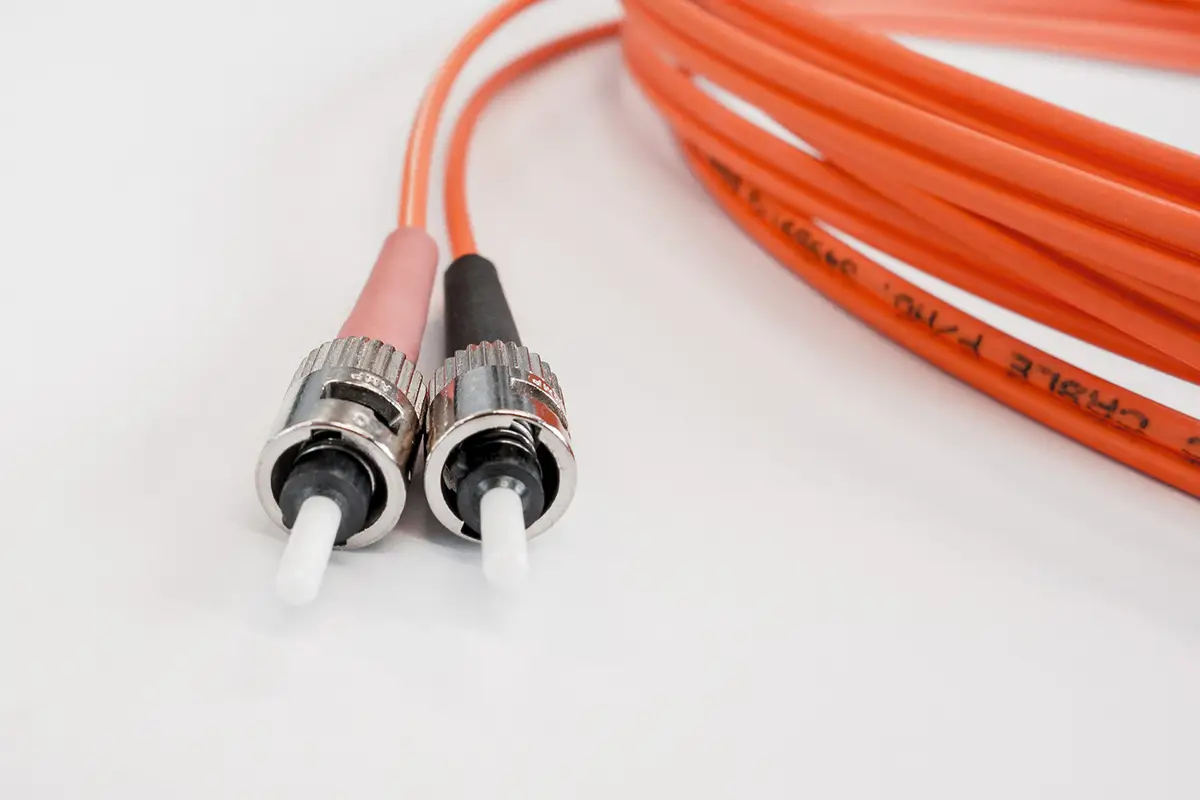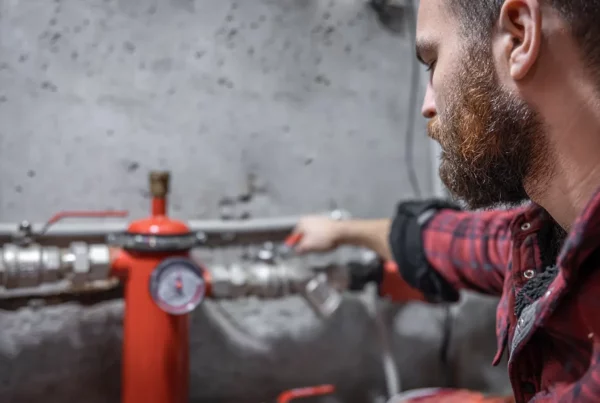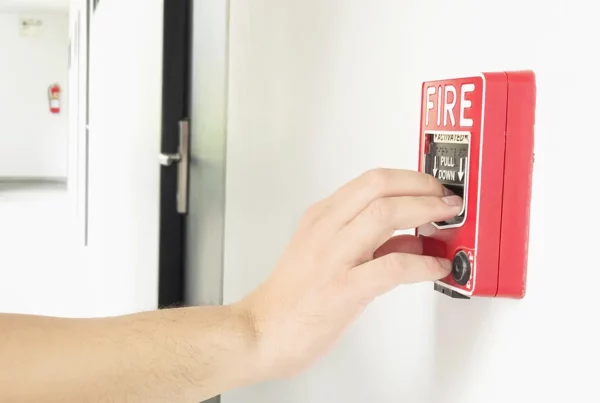
Fiber optics is a modern day network that uses the latest technology to provide high-speed data and voice transmission services. One of the best things about fiber-optic networks is that they do not use traditional copper wires to transmit information, which means less interference with signals and more reliability on long distances. Fiber optic networks can also be used for security purposes because it makes it difficult for unauthorized people to tap into the line. Fiber optic networks are the best choice for businesses and governments that transmit large amounts of data.
Advantages of Fiber Optic Cables & Modern Day Networks
1) Higher Speeds
Fiber optic cables are more reliable on long distances than copper wire because there is no crosstalk or crosstalk of the signal.
This means that your connection will be faster, and you have greater bandwidth for transmitting data across long distances without any problems with slow connections.
A robust fiber optic network can also provide reasonable security for governments who need to transmit large amounts of critical information amongst their agencies. It makes it difficult for unauthorized people to tap into the line due to its quality of being an open channel. This gives users peace of mind knowing that private communications are secure from hackers too. Moreover, businesses that wish to conduct transactions over the internet may invest in a fiber optics system to provide faster connectivity and more bandwidth for transmitting large amounts of data.
Fiber optic cables are the best choice for businesses who wish to transmit large amounts of critical information or conduct transactions over the internet because it provides high-speed connections with greater bandwidth that is reliable, secure and very few problems along the way.
2) More Reliable
Reliable on long distances compared to the copper wire. High-security measures makes tapping into line difficult -provides fast connection speeds & incredible bandwidth even in busy times.
3) Newer Technology
Very expensive to set up initially. Massive infrastructure needs installing first. Fiber optics is a modern day network that uses the latest technology to provide high-speed data and voice transmission services. One of the best things about fiber-optics networks is that they do not use traditional copper wires to transmit information, which means there is less interference with signals and more reliability on long distances. Fiber optics networks can also be used for security purposes because it makes it difficult for unauthorized people to tap into the line. Fiber optic networks are the best choice for businesses and governments that need to transmit large amounts of data. Advantages of fiber optic cables: no crosstalk or crosstalk between signals powerful enough to give peace of mind knowing sensitive information will not be reliable on long distances compared to copper wire provides fast connection speeds & incredible bandwidth even in busy times.
Fiber optic cables are the best choice for businesses who wish to transmit large amounts of critical information or conduct transactions over the internet because it provides high-speed connections with greater bandwidth that is reliable, secure and very few problems along the way.
4) More Secure Than Copper Wire
One of the best things about fiber optic networks is that they do not use traditional copper wires to transmit information, which means there is less interference with signals and more reliability on long distances. Fiber optic networks can also be used for security purposes because it makes it difficult for unauthorized people to tap into the line.
A robust fiber optics network can provide reasonable security for governments who need to transmit large amounts of critical information amongst their agencies. It makes tapping into lines complicated due to its qualities being an open channel. This gives users peace of mind knowing private communications are secure from hackers too. Moreover, businesses wishing to conduct transactions over the internet may invest in a fiber optics system. It provides faster connectivity and greater bandwidth that is reliable, secure and has very few problems along the way.
5) More Bandwidth
Fiber optic networks are the best choice for businesses and governments that need to transmit large amounts of data. One of the best things about fiber optics is that it does not use traditional copper wires to pass signals, which means there is less interference with information being transmitted compared to conventional telephone lines. This makes fiber optics a good option for reliable long-distance transmission because they provide high-speed connections with greater bandwidth. Fiber optic cables also make reasonable security measures as tapping into them can be very difficult due to their qualities, making it an open channel; this gives users peace of mind knowing private communications are secure from hackers. Businesses wishing to conduct transactions online may want to invest in a fiber optics system. It provides faster connectivity and more reliable, specific bandwidth and very few problems along the way.
6) Less Costly In The Long Run
Fiber optic cables are the best choice for businesses who wish to transmit large amounts of critical information or conduct transactions over the internet because it provides high-speed connections with greater bandwidth that is reliable, secure and very few problems along the way. Fiber optics networks do not use traditional copper wires to pass signals, which means there is less interference with information transmission than conventional telephone lines. This makes fiber optics a good option for reliable long-distance transmission because they provide high-speed connections with greater bandwidth. Fiber optic cables also make suitable security measures as tapping into them can be very difficult due to their qualities, making it an open channel; this gives users peace of mind knowing private communications are secure from hackers. Businesses wishing to conduct transactions online may want to invest in a fiber optics system as it provides faster connectivity and more bandwidth that is reliable, secure and very few problems along the way.
Moreover, businesses wishing to transmit large amounts of critical information over the internet may invest in a fiber optics system because it provides high-speed connections with greater bandwidth that is reliable, secure and very few problems. Fiber optic cables are also suitable security measures. Tapping into them can be difficult due to their qualities, making an open channel; this gives users peace of mind knowing private communications are secure from hackers. A robust fiber optic network can provide reasonable security for governments who need to transmit large amounts of critical information amongst their agencies, making tapping into lines complicated.
7) Less Interference In General
Fiber optic cables are the best choice for businesses and governments to transmit large amounts of data. One of the best things about fiber optics is that it does not use traditional copper wires to pass signals, which means there is less interference with information being transmitted compared to conventional telephone lines. This makes fiber optics a good option for reliable long-distance transmission because they provide high-speed connections with greater bandwidth. Fiber optic cables also make suitable security measures. Tapping into them can be very difficult due to its qualities, creating an open channel; this gives users peace of mind knowing private communications are secure from hackers.
8) Less Problems In General
Fiber optic cables are also suitable security measures. Tapping into them can be difficult due to their qualities, making an open channel; this gives users peace of mind knowing private communications are secure from hackers. Fiber optics networks do not use traditional copper wires to pass signals, which means there is less interference with information transmission than conventional telephone lines. This makes fiber optics a good option for reliable long-distance transmission because they provide high-speed connections with greater bandwidth. Fiber optic cables also make suitable security measures as tapping into them can be very difficult due to their qualities.
Disadvantages of Fiber Optic & Modern Day Networks
1) Expensive
One disadvantage of fiber optics is that they can be quite expensive to implement and maintain. Fiber optic networks require a lot of equipment, including cables, connectors, repeaters and other hardware, which means it will cost businesses more than traditional telephone lines. However, once installed, fiber optics do not need as much maintenance as copper wire systems because no poles or wires need repairs from wear-and-tear due to their high strength protection against outside elements such as rain damage. Fiber optics can be costly to install and maintain. Fiber optic networks require a lot of equipment, including cables, connectors, repeaters and other hardware, which means it will cost businesses more than traditional telephone lines. However, once installed, fiber optics do not need as much maintenance as copper wire systems because no poles or wires need repairs from wear-and-tear due to their high strength protection against outside elements such as rain damage. One disadvantage of fiber optics is that they have low capacity; this means information transmission rates over long distances may suffer if too many people use them at one time. Installing additional channels in order to share data with multiple users simultaneously allows for increased bandwidth but adds extra costs to the project.
2) Low Capacity
One of the things people don’t know about fiber optics because they have low capacity; this means information transmission rates over long distances may suffer if too many people use them at one time. Installing additional channels in order to share data with multiple users simultaneously allows for increased bandwidth but adds extra costs to the project. Fiber optics can be costly to install and maintain. Fiber optic networks require a lot of equipment, including cables, connectors, repeaters and other hardware, which means it will cost businesses more than traditional telephone lines. However, once installed, fiber optics do not need as much maintenance as copper wire systems because no poles or wires need repairs from wear-and-tear due to their high strength protection against outside elements such as rain damage.
3) More Maintenance
Fiber optic can be costly to install and maintain. Fiber optic networks require a lot of equipment, including cables, connectors, repeaters and other hardware, which means it will cost businesses more than traditional telephone lines. However, once installed, fiber optics do not need as much maintenance as copper wire systems because no poles or wires need repairs from wear-and-tear due to their high strength protection against outside elements such as rain damage. One disadvantage of fiber optics is that they have low capacity; this means information transmission rates over long distances may suffer if too many people use them at one time. Installing additional channels in order to share data with multiple users simultaneously allows for increased bandwidth but adds extra costs to the project.
Fiber Optic vs Cable
The latest range of voice, data networking products at very competitive prices are available with us, and we ship them on the same day they’re ordered. Our experience working within telecommunication companies enables us to design your networks to fit perfectly within your business operations without unnecessary cost complications. This is why more than 90% of our business comes from referrals.
Today there’s a huge demand for network cabling infrastructure as well as fiber optics technology because businesses want high-speed connectivity between their offices worldwide; this is vital for successful company collaboration across all departments such as sales, marketing, customer service & technical support.
Fiber optics stand out among modern day networks due to their ability to handle terabytes of data per second.
In the past, telephone companies used copper wires that were strung from poles or laid underground for their landline networks which could not carry a large amount of data at once and had a limited distance they could transmit it.
Fiber optics have been around since 1879, when they were first used to transmit information.
Today, fiber optic cables are made of strands composed of glass or plastic that act as light guides. They send the signal in various forms through pulses of laser-generated infrared light down an extremely thin strand that looks like a hair when it looks like a hair visible under the microscope.
Fiber optics bring about significant advantages over traditional copper wires because they can carry data much faster (light can travel miles within milliseconds) and across greater distances. They are also not disrupted along the way. They also offer security benefits because there’s no interference from outside factors such as radio waves, microwaves, etc. Signals aren’t transmitted over large areas but rather directed straight into devices with receivers built specifically for fiber optics transmissions.









